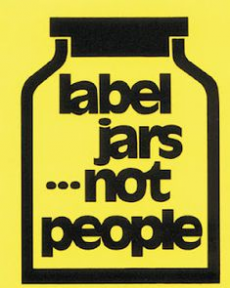
Email: nadege.preston@hotmail.com
Total Article : 82
About Me:Hi I’m Nadege and I study French at the University of Leeds, and I have just completed my third year abroad in Montpellier studying literature and enjoying the sunshine! I love art; painting and being creative, as well as photography and baking. Travelling is my favourite hobby at the moment; experiencing the French language and culture. I hope you enjoy reading some of my articles!

I am writing this article with the deliberate intention to use people-first language, using the term ‘people with disabilities’. This is due to the fact that although it is not a term used in the UK, people-first language puts the person before the disability; therefore their identity is not overridden by the fact that they have a disability. It helps avoid any dehumanization of the person as it describes what the person has, not what the person is. Consequently, it divides the disability from the person and implies there are many types of disabilities; which does not occur in the UK term ‘disabled people’.
Firstly, it is important to understand that in the 1970s, a new way of thinking arose when regarding disability. This was mainly due to the Disability Rights Movement which aimed specifically to reform accessibility and safety for people with physical disabilities. It was from these aims that the social model of disability developed, specifically through the organization; Union of the Physically Impaired Against Segregation (UPIAS) who developed their own definitions of impairment and disability. Unlike the previous model of disability; the medical model which argues that the impairment is the main cause of social exclusion, the social model instead argues that disability is caused by the way in which society responds to people with impairments.
Consequently, according to the social model, the societal barriers which are to blame for a person’s restriction in society, cause social exclusion and marginalization. This links to psycho-emotional disablement (which is a term used to describe any psychological interaction with emotions), as society ’rejects’ people with impairments from public life, and therefore disability is imposed onto them, causing negative self-images and internalised oppression.
Internalised oppression can be caused in many aspects of society, for example; work, transport, education, daily activities, attitudes, symbols, the media etc. With internalised oppression becoming a daily occurrence for some individuals, it can cause many long-term negative effects such as negative self-images, low expectations, fears, pain, insecurity, feeling worthless, hopelessness and feeling unattractive. According to Reeve, 2004, the gaze and self-surveillance create the concept of psycho-emotional disablement. Firstly, the gaze; an everyday social interaction is an occurrence which causes people with disabilities to feel vulnerable, humiliated and exposed. The pity and hostility they receive from the gaze of people who are not disabled derive from stereotypes formed by society about those who are ‘different’ or ‘abnormal’.
Consequently, the gaze is more likely to occur with people who have visible impairments, as the person does not fit into the category of the ‘norm’. However, the gaze is also subject to those who have hidden impairments as there is a fear of being ‘discovered’ because people will receive hostility for using disabled facilities. The gaze is also apparent in a different form; scrutinizing one’s self, which forces people with disabilities to critically gaze upon their own body. The benefit system of the welfare state is an example of this form of gaze. When applying for the Disability Living Allowance (DLA), which is available to all people with disabilities, they are forced to ‘classify’ their bodies. Though there is no interview system, therefore the people with disabilities are not gazed upon, it is instead necessary to report how their own body fails to meet the ‘norm’ and adopt the negative perspective of society to gaze upon their own bodies and adopt oppressive thinking. The second concept is self-surveillance, which is the condition of being observed. This relates to psycho-emotional disablement because it forces people with disabilities to view themselves the way people who are non-disabled do; through negative stereotypes. Thus, this leads to a lack of self-esteem, negative self-images and a process of de-valuing one’s self.
However, as attitudes towards people with disabilities may not be easily changeable due to the fact that negative stereotypes are ingrained into unconscious minds, it is possible for people with disabilities to oppose them, and challenge the psycho-emotional dimensions of disability. For example, the notions of beauty and perfection have been challenged by some people with disabilities through modelling clothes designed by Alexander McQueen in the British fashion, culture and arts magazine; ‘Dazed & Confused’. This is a clear example of self-transformation because the people with disabilities are creating themselves as sexual, attractive people and are producing a positive image for all those with impairments whilst rejecting the stereotypical image that people with disabilities are ‘confined’ to a wheelchair. In fact, the gaze is turned back onto the reader as they refuse to be humiliated and ashamed of their impairment.
It is important to realise how people with disabilities may be marginalised from society and that many may be suffering a silent battle. Oppression against people with disabilities occurs everyday, almost normalised by institutions in society. For example, do you think it is right for public toilets to be named the 'disabled toilets' for 'disabled people'? Should it not be the 'accessible toilets'?
IMAGE URL
https://s-media-cache-ak0.pinimg.com/236x/50/54/59/505459a73841867fa44ee749c57645c7.jpg

0 Comment:
Be the first one to comment on this article.